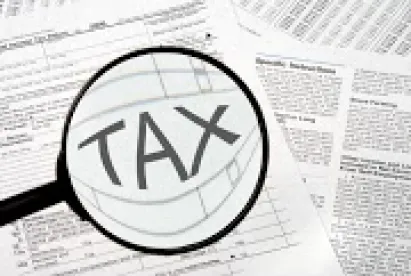On October 30, 1975, The Daily News published one of the most famous headlines in American history – Ford to City: Drop Dead – to paraphrase President Ford’s refusal to extend federal financial assistance to New York City to prevent the City from declaring bankruptcy. Nearly 40 years later, a different branch of the federal government delivered similarly unwelcome financial news to New York City (and to other municipalities and counties that impose income taxes). In Comptroller of the Treasury of Maryland v. Wynne, the United States Supreme Court held by a five-to-four majority that the county component of the Maryland state income tax violated the dormant Commerce Clause of U.S. Constitution as an unfairly apportioned tax because it applied, without the benefit of credit for taxes paid to other states, both to the world-wide income of county residents and to the income of nonresidents derived in the county.
While every state that levies an income tax affords its residents a credit for income taxes paid to other states, many of the 5,000 state political subdivisions that impose an income tax, including New York City and virtually all Ohio municipal corporations, do not allow their residents a credit for income taxes paid to other states. To comply with Wynne, these political subdivisions must either provide their residents a credit for income taxes paid to other states or cease assessing income tax on income derived in the political subdivision by nonresidents. Regardless of which alternative is chosen, these political subdivisions face significant revenue losses. For example, it is estimated that Maryland counties will owe approximately $200,000,000 in refunds and lose roughly $42,000,000 annually as a result of Wynne.
So, how did the Supreme Court reach its decision in Wynne? The majority opinion, authored by Justice Alito, recites the four factors that the Court has previously held must be satisfied for a state (or political subdivision) tax to avoid discriminating against interstate commerce in violation of the dormant Commerce Clause. Such a tax must: (1) be applied to an activity with a substantial nexus to the taxing state (or political subdivision); (2) be fairly apportioned; (3) be fairly related to the services provided by the taxing state (or political subdivision); and (4) not discriminate against interstate commerce. The factor at issue in Wynne was whether the county component of the Maryland income tax was fairly apportioned. The Court held that this tax was not fairly apportioned, because it was not “internally consistent” and would result in duplicative taxation of interstate commerce.
The apportionment of a state or local tax is internally consistent for purposes of the dormant Commerce Clause if it is assumed that all other jurisdictions have the same tax structure and, in this hypothetical world, interstate income is not taxed more than once. The county component of the Maryland income tax applies to all taxable income of a county resident, wherever derived, and it also applies to the taxable income derived from county sources by a nonresident. A county resident may not claim a credit against the county component of the Maryland income tax for income taxes paid to other states on the same income that is subject to the Maryland tax. Thus, if every jurisdiction had this same income tax structure, interstate income would be subject to double taxation – first by the jurisdiction in which the income is earned and then by the jurisdiction in which the recipient of the income resides. The Court held that the lack of internal consistency caused the county component of the Maryland income tax to be unfairly apportioned and to act as a disincentive to earning interstate income, all in violation of the dormant Commerce Clause.
Justices Scalia and Thomas each wrote separate dissenting opinions to state their respective opposition to the dormant Commerce Clause doctrine. Justice Ginsburg’s dissent, which was joined by Justices Kagan and Scalia, did not dispute the validity of the dormant Commerce Clause, but it raised a number of objections to the majority’s application of that doctrine. A primary contention asserted by Justice Ginsburg (and that was also noted by Justice Scalia in his separate dissent) is that the Court should have adhered to the view set forth in Goldberg v. Sweet, 488 U.S. 252, 266 (1989), and not applied the dormant Commerce Clause to the tax structure at issue in Wynne. The Court observed in Goldberg that “it is not the purpose of the Commerce Clause to protect state residents from their own state taxes” because residents, unlike those who do not reside in the state, can object to these taxes and effect change to the state tax system through the electoral process. Thus, Justice Ginsburg would have left undisturbed, without an application of the dormant Commerce Clause, the Court’s prior conclusion that, under the Constitution’s Due Process Clause, a state (or political subdivision of a state) may tax all the income of a resident, wherever earned.
The majority opinion in Wynne dismissed the Court’s statement in Goldberg as dictum that was at odds with prior precedent. The Court is not bound by what it characterizes as its prior dicta, and it would have sufficed for the majority opinion in Wynne to have left its dismissal of Goldberg v. Sweet at that. The majority opinion, however, espoused some gratuitous, and regrettable, dictum on this point. The majority opinion rejected as “fanciful” the notion that residents aggrieved by a tax structure like the one at issue in Wynne could obtain relief through the electoral process, because “it is likely that only a distinct minority of a State’s residents earns income out of State” and that such residents would therefore be outnumbered in any election.
In response, Justice Ginsburg observed in her dissent that when states first began to enact income taxes, many of them did not grant a credit to their residents for income taxes paid to other states and “that the very political processes the Court disregards as ‘fanciful’ have in fact worked” to result in the uniform grant of such credits by states that levy an income tax. She cites this in support of adherence to the philosophy of Goldberg v. Sweet and “to resist this Court’s heavy-handed supervision” of tax structures like the one at issue in Wynne. Had she wished to pile on, Justice Ginsburg could also have noted the success obtained by the distinct minorities that are subject to federal and state estate taxes and the top marginal federal and state income tax rates in lobbying for legislation that reduces these tax burdens. These minorities have succeeded in temporarily repealing the federal estate tax and, upon its reinstatement, significantly increasing the amounts that are exempt from that tax. They have also garnered the repeal of the estate tax in many states, and they have generally enjoyed over the last 35 years a significant reduction in the top marginal federal income tax rates and state income tax rates. The majority that has supported these reforms benefits only indirectly, if at all, from them. These reforms have prevailed through the electoral process notwithstanding that those who benefit directly from them are a distinct minority of any population. The disparagement of the electoral process by the majority opinion in Wynne is not only gratuitous and regrettable, it is demonstrably wrong and the height of judicial arrogance.
Regardless of whether the Court correctly applied the dormant Commerce Clause in Wynne, the decision is now the law (absent a very unlikely intervention by Congress, which has plenary power under the Commerce Clause), and, as noted above, it will work to the financial detriment of the many state political subdivisions that have income tax structures like the county income tax component of the Maryland income tax. Residents of such political subdivisions who were not granted an income tax credit should not yet, however, count their refunds or plan on obtaining credits in future tax years. A tax structure like the one at issue in Wynne would be “internally consistent” and not discourage interstate commerce if nonresidents were not subject to the given jurisdiction’s income tax. Thus, political subdivisions that have relatively few nonresident taxpayers but many resident taxpayers with interstate income could comply with Wynne by granting refunds to the nonresident taxpayers and excusing nonresidents from the income tax in the future.
Finally, it must be noted that I predicted in the earlier post on Wynne that a majority consisting of at least Justices Ginsberg, Kagan, Scalia, Sotomayer, and Thomas would uphold the structure of the county income tax component of the Maryland income tax. Justice Sotomayer, a native of the Bronx, decided against her hometown’s interests and stymied my prediction. I did, however, also predict that if the taxpayers prevailed in Wynne, we would at least be treated to one of the sharply worded dissents for which Justice Scalia is well known. I nailed that one.




 />i
/>i
